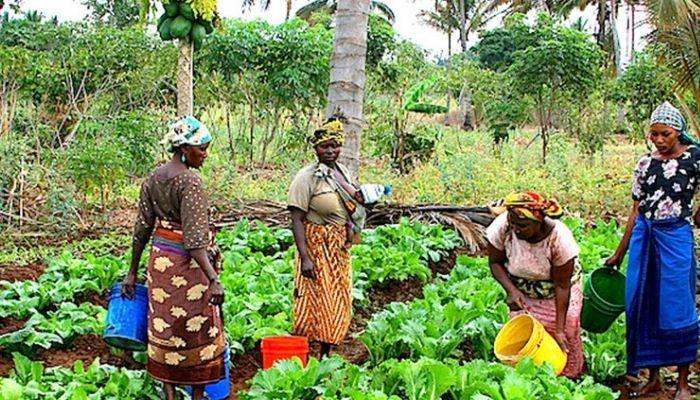The Small-Scale Women Farmers Organization of Nigeria (SWOFON), Kwara Chapter, has lamented the crash in food crop prices across the state, saying it has left many farmers running at a loss.
The women farmers expressed their concern at the commemoration of the 2025 World Food Day, organized by ActionAid Nigeria in collaboration with the Centre for Community Empowerment and Poverty Eradication (CCEPE) and SWOFON.
SWOFON Ilorin East Coordinator, Funmilayo Lawal, said the farmers had barely recovered from the impact of climate change in 2024 when the fall in food prices began to affect their livelihoods.
She appealed for government intervention to ease the financial burden on farmers.
“Though food prices are crashing, the cost of inputs and labour has not reduced,” Lawal said.
“The government has been supporting us, but more still needs to be done. If this situation continues, many of us may stop farming because we are not gaining but losing.”
Another member of the group from Baruten Local Government Area, Mrs. Mary Adeniyi, said many farmers were forced to store their produce at home to avoid selling at a loss — a situation she described as unsustainable.
“Prices have dropped drastically, so we keep our produce. But labour costs remain high,” she said.
“Maize now sells for about ₦5,000 and soya beans for ₦10,000. How do we pay for machines and chemicals? The government should help us with farm implements to reduce our dependence on laborer’s.”
For Habibat Lawal, a SWOFON member in Oyun Local Government Area, only timely government intervention can turn the falling food prices into a blessing for women farmers.
The Executive Director of CCEPE, Mr. Abdulrahman Ayuba, commended the Kwara State Government’s efforts in agriculture but called for better policy implementation and increased funding.
“The government needs to do more because most agricultural policies are not implemented, and funding for the sector is inadequate,” he said.
“The current four per cent budgetary allocation to agriculture is far below the 10 per cent agreed under the 2010 CADIP declaration. Even approved funds are often delayed.”
SWOFON State Coordinator, Mrs. Modupe Suleiman, said the success of agriculture depends on the collective support of government, communities, and farmers’ associations.
She called for more assistance for women farmers, describing them as the backbone of food production and food security.
“There is a need for global cooperation among governments, organizations, and communities to transform the agricultural food system,” she said.
“We need gender-friendly small-scale agro-mechanical devices, quality seeds, extension services, and training on farm management and maintenance.”
She also appealed for support in food preservation and storage techniques to improve productivity and reduce post-harvest losses.
Suleiman further identified insecurity and lack of access to finance as major challenges facing women farmers in the state.
The Managing Director of the Kwara Agriculture Development Project (ADP), Mrs. Khadijah Ahmed, reaffirmed the agency’s commitment to supporting women farmers, describing them as “the real feeders of the nation.”
She noted that Governor AbdulRahman AbdulRazaq has been prioritizing agriculture, with ADP implementing several government policies to empower women in the sector.
Commissioner for Agriculture and Food Security, Mr. Azeez Abolore, said despite government efforts, hunger persists globally due to climate change.
Represented by Mr. Sanni Olori, Director of Engineering and Agricultural Development, the commissioner stressed that technological innovation and policy reforms were crucial to achieving zero hunger.
He reaffirmed the state government’s commitment to building a future where every resident has access to sufficient and nutritious food.


